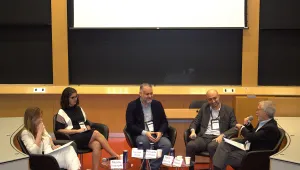
Abstract
This paper examines the choice between—and design of—CO2 cap-and-trade and tax policies through a political-economy lens. It draws from insights in economics and political economy to highlight important public policy principles and policy options in carbon-pricing policy design. The paper illustrates each of these insights with examples from cap-and-trade and tax-policy experiences. Revealed political preferences about carbon-pricing-policy design can, in practice, inform our understanding of how decision-makers weigh various policy principles, as well as policy objectives. The balance of the paper examines the following design choices: establishing and phasing-in policy targets; setting the point of compliance and scope of coverage; addressing uncertainties in emission and cost outcomes under carbon pricing; updating carbon-pricing targets over time; using revenue and other forms of economic value created by carbon pricing; mitigating adverse competitiveness impacts of pricing carbon; accounting for the existing, complex policy landscape in designing carbon pricing; and linking of carbon-pricing programs. The final section concludes with a discussion of policy implications and next steps for policy-relevant scholarship.
Acknowledgement
The Harvard Project on Climate Agreements is grateful to the Enel Foundation and the Enel Endowment for Environmental Economics at Harvard University for generous support of a series of annual discussion papers on climate-change policy and related topics in energy policy, of which this paper is the seventh.
Author Affiliation
Joseph E. Aldy, Harvard University
Aldy, Joseph. “ The Political Economy of Carbon Pricing Policy Design .” October 2017





